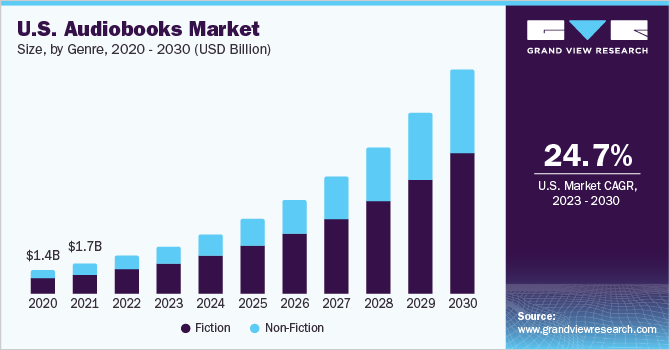How Do Best Selling Audiobooks Impact The Publishing Industry?
Ah, audiobooks. The perfect companions for long commutes, lazy afternoons, or just about any time you want to immerse yourself in a captivating story. But did you know that these best-selling audiobooks have a significant impact on the publishing industry? You might be surprised by the ways in which they shape the landscape of literature and storytelling. So, let’s dive in and explore the fascinating world of audiobooks and their influence on the publishing industry.
In a world where technology is constantly evolving, it’s no wonder that audiobooks have gained immense popularity. Gone are the days of lugging around heavy books or straining your eyes to read small print. With just a few taps on your phone or tablet, you can have a whole library of captivating stories at your fingertips. But what does this mean for the publishing industry? Well, the rise of best-selling audiobooks has opened up new opportunities for authors, publishers, and even voice actors. It has created a whole new market for storytelling, reaching audiences who may not have the time or inclination to sit down and read a physical book. So, let’s explore how these best-selling audiobooks are making waves in the publishing industry and revolutionizing the way we experience literature.

How Do Best Selling Audiobooks Impact the Publishing Industry?
Audiobooks have experienced a remarkable surge in popularity over the past decade. With the convenience of listening on-the-go and the rise of platforms like Audible, more and more people are opting to experience their favorite books in audio format. This shift in consumer behavior has had a significant impact on the publishing industry, reshaping the way books are produced, marketed, and consumed. In this article, we will explore the various ways in which best-selling audiobooks have influenced the publishing industry and why they have become a force to be reckoned with.
The Rise of Audiobook Sales
The popularity of audiobooks cannot be denied. In recent years, the industry has experienced exponential growth, with record-breaking sales numbers. This surge in demand for audiobooks has had a profound effect on the publishing industry. Publishers are now investing more resources in producing high-quality audiobooks to meet the growing demand. The increased sales of audiobooks have also led to a rise in revenue for publishers, creating new opportunities for authors and encouraging them to explore audio formats for their works.
Audiobook sales have become a significant source of revenue for publishers. The convenience and accessibility of audiobooks have attracted a new demographic of readers who may not have otherwise engaged with traditional print books. This expansion of the market has opened up new avenues for authors to reach a wider audience and has created a more diverse and inclusive literary landscape.
Changing Narration and Performance Standards
One of the key factors contributing to the success of audiobooks is the narration and performance aspect. Unlike traditional books, audiobooks require skilled voice actors to bring the story to life. The demand for talented narrators has led to a shift in the standards for audiobook production. Publishers are now investing more in finding the perfect voice for each book, ensuring that the narration enhances the overall listening experience.
The impact of this shift can be seen in the increased recognition of narrators and voice actors. Audiobook narrators are now being celebrated for their contributions to the industry, with awards specifically dedicated to honoring their performances. This recognition has not only elevated the status of audiobook narration but has also attracted talented actors to lend their voices to the medium. As a result, the quality of audiobook narration has significantly improved, further driving the popularity of the format.
In addition to narration, audiobooks have also opened up new avenues for creative storytelling. With the rise of multi-cast productions and the incorporation of sound effects and music, audiobooks have become immersive experiences that go beyond the traditional reading experience. This experimentation with audio storytelling has not only enhanced the enjoyment for listeners but has also created new opportunities for collaboration between authors, narrators, and sound designers.
The Impact on Publishing Strategies
The rise of audiobooks has forced publishers to rethink their strategies and adapt to the changing landscape of the industry. With the increasing demand for audio content, publishers are now incorporating audiobook production into their overall publishing plans from the early stages of a book’s development. This strategic approach allows publishers to optimize the reach and impact of a title by ensuring that it is available in multiple formats, including print, e-book, and audiobook.
Publishers are also leveraging the popularity of audiobooks to drive sales and increase discoverability. Many publishers now offer bundled packages that include both the print and audiobook versions of a title, enticing readers to engage with the story in different ways. This cross-promotion has proven to be effective in boosting sales and creating a more integrated reading experience.
Expanding Opportunities for Authors
The rise of audiobooks has created new opportunities for authors to expand their reach and connect with a wider audience. Authors can now explore different formats for their works, allowing them to tap into the growing audiobook market. This expansion of opportunities has also led to an increase in audiobook-specific deals and contracts, giving authors the chance to negotiate separate audio rights for their books.
Additionally, the success of audiobooks has led to increased interest from Hollywood and other media platforms. Best-selling audiobooks have the potential to be adapted into movies, TV shows, or podcasts, providing authors with additional sources of income and exposure. This cross-platform adaptation has become a key consideration for authors and publishers, further cementing the influence of audiobooks in the industry.
In conclusion, the impact of best-selling audiobooks on the publishing industry cannot be underestimated. The rise in audiobook sales has reshaped publishing strategies, influenced narration standards, and opened up new opportunities for authors. As the demand for audiobooks continues to grow, it is clear that they have become a powerful force in the industry, driving innovation and redefining the way books are consumed. Whether you prefer to read in print or listen to a captivating narration, audiobooks have undoubtedly left their mark on the publishing world.
Key Takeaways: How Do Best Selling Audiobooks Impact the Publishing Industry?
- Audiobooks have become increasingly popular, influencing the publishing industry.
- Best selling audiobooks can significantly boost book sales and revenue.
- They provide a new way for readers to consume books and expand the reach of authors.
- Audiobooks cater to the growing demand for convenient and multitasking-friendly content.
- The success of audiobooks has led to increased investments in audio production and narration talent.
Frequently Asked Questions
Question 1: How do best selling audiobooks impact the publishing industry?
Audiobooks have had a significant impact on the publishing industry in recent years. With the rise of digital platforms and the increasing popularity of audiobooks, publishers have seen a surge in revenue and a broader reach for their content. Best selling audiobooks not only generate substantial sales but also help publishers attract new readers and expand their audience base.
Additionally, the success of audiobooks has led to increased competition among publishers, as they strive to acquire the rights to popular books and secure talented narrators. This competition has resulted in higher production values and improved quality in audiobook production, ensuring that listeners have access to a wide range of well-produced and engaging audiobooks.
Question 2: How do best selling audiobooks affect book sales?
Best selling audiobooks have had a positive effect on book sales. While some may argue that the popularity of audiobooks could cannibalize physical book sales, studies have shown that the two formats actually complement each other. Many readers enjoy both formats and may choose to purchase a book in multiple formats, such as buying the physical book for their collection and listening to the audiobook for convenience.
Furthermore, best selling audiobooks often bring attention to the corresponding print editions, leading to increased sales of physical books. Audiobooks act as a promotional tool, enticing readers to explore the author’s other works and encouraging them to purchase additional books in the series or by the same author.
Question 3: How do best selling audiobooks impact author royalties?
The success of best selling audiobooks has had a positive impact on author royalties. With the growing popularity of audiobooks, publishers are investing more in acquiring audio rights and producing high-quality audiobooks. This increased investment translates to higher royalty rates for authors, as they earn a percentage of the audiobook sales.
Moreover, best selling audiobooks often lead to increased exposure for authors, which can result in higher book sales and subsequent royalty payments. As audiobooks reach a broader audience, authors have the opportunity to expand their fan base and attract new readers, ultimately boosting their overall earnings.
Question 4: How do best selling audiobooks affect the publishing industry’s marketing strategies?
Best selling audiobooks have revolutionized the publishing industry’s marketing strategies. Publishers now recognize the importance of promoting audiobooks alongside print editions, as audiobooks have become a significant revenue stream. Marketing campaigns often include audio samples, trailers, and collaborations with popular narrators to generate interest and attract listeners.
Furthermore, the popularity of audiobooks has opened up new marketing channels, such as podcast sponsorships and partnerships with streaming platforms. Publishers are leveraging these opportunities to reach a wider audience and connect with listeners who may not traditionally engage with physical books.
Question 5: How do best selling audiobooks impact the careers of narrators and voice actors?
Best selling audiobooks have had a transformative effect on the careers of narrators and voice actors. The demand for talented narrators has skyrocketed, leading to increased opportunities and recognition for these individuals. Successful audiobooks can elevate a narrator’s status and open doors to more lucrative projects.
Additionally, best selling audiobooks often lead to collaborations between narrators and authors or publishers, creating long-lasting partnerships. This not only benefits the narrators financially but also helps them establish a reputation within the publishing industry.
How to Make Money Publishing Audiobooks on Audible ($16,751 Per Month)
Final Summary: The Impact of Best Selling Audiobooks on the Publishing Industry
In conclusion, it is evident that best selling audiobooks have made a significant impact on the publishing industry. With the rise in popularity of audiobook consumption, publishers and authors alike have recognized the immense potential and opportunities that this medium offers. The convenience and accessibility of audiobooks have opened up new avenues for storytelling and audience engagement, revolutionizing the way books are consumed.
One of the key impacts of best selling audiobooks is the expansion of the publishing market. As audiobooks gain traction, they reach a wider audience, including those who may not have the time or inclination to read physical books. This has led to increased book sales and revenue for publishers, as well as greater exposure for authors. The demand for audiobooks has created a flourishing industry, with specialized production teams and narrators dedicated to creating high-quality audio experiences.
Moreover, best selling audiobooks have also sparked innovation in the publishing industry. Publishers are now investing more resources into producing audiobooks, ensuring that they provide an immersive and captivating listening experience. This has led to the development of new technologies and techniques for audio production, enhancing the overall quality of audiobooks. Additionally, authors are now considering the audio format during the writing process, making deliberate choices to enhance the auditory experience of their stories.
In conclusion, the impact of best selling audiobooks on the publishing industry cannot be overstated. They have expanded the market, increased revenue, and driven innovation. As the demand for audiobooks continues to grow, publishers and authors must embrace this medium and adapt their strategies to cater to the needs of an ever-evolving audience. By harnessing the power of audiobooks, the publishing industry can continue to thrive in the digital age.





